#2000 films
Text
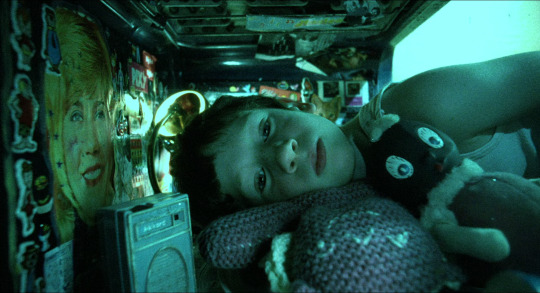

Hedwig and the Angry Inch (2001)
Director: John Cameron Mitchell
Cinematography: Frank G. DeMarco
Production Design: Thérèse DePrez
Art Direction: Nancey Pankiw
#cinematography#film stills#movie stills#hedwig and the angry inch#john cameron mitchell#cult classic#queer film#i could write a dissertation about this movie and not entirely in a good way#2000 films#early 2000s#2000s movies#2000s aesthetic
135 notes
·
View notes
Text

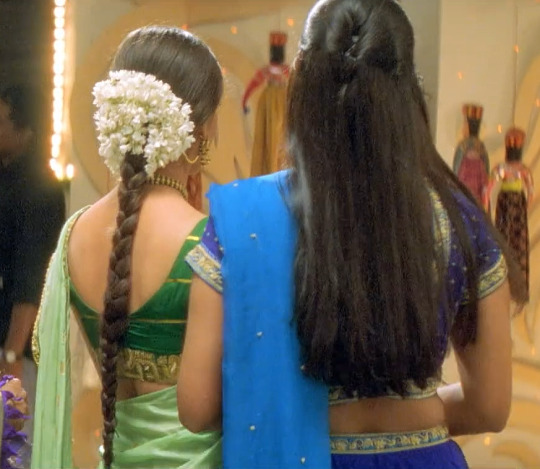
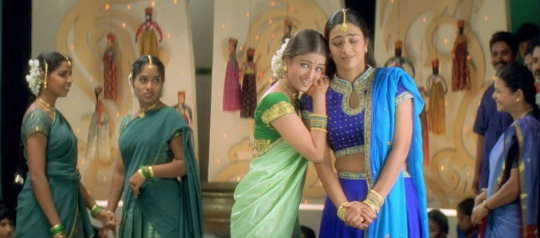

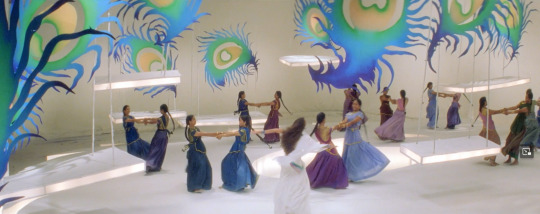
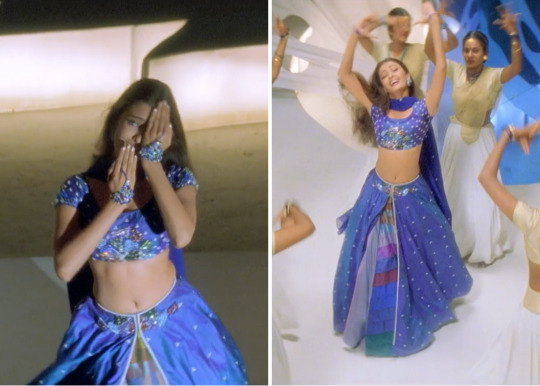
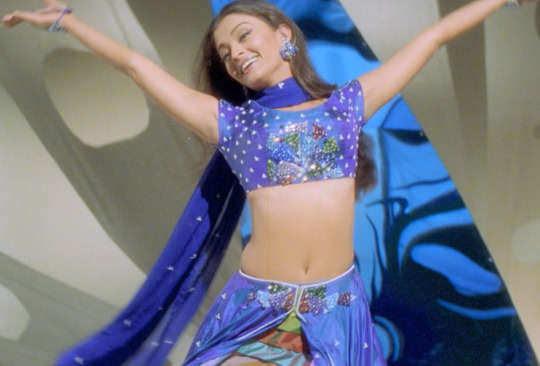
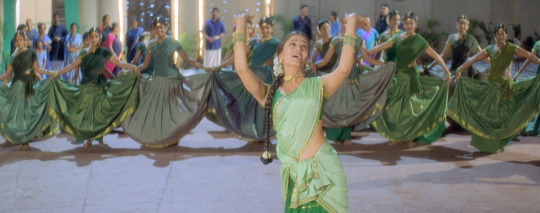


One Dress a Day Challenge
July: Blue Redux + Green Redux
I Have Found It (Kandukondain Kandukondain) / Aishwarya Rai as Meenakshi and Tabu as Sowmya
When I first designated the theme for July, I knew I had to include shots from this sequence, probably the most gorgeous riot of blue and green I've ever seen on film. I am including wide shots of most of the scenes to show the costumes of the chorus and extras as well. Note that when the two sisters are onscreen at the same time, the background characters divide themselves up so that those in blue are on Sowmya's side and those in green are on Meenakshi's.
(This is an adaptation of Sense and Sensibility, by the way. Sowmya is the equivalent to Eleanor and Meenakshi is Marianne.)
See the whole sequence here, because it's even more amazing with motion:
youtube
#kandukondain kandukondain#green dresses#blue dresses#aishwarya rai#tabu#one dress a day challenge#one dress a week challenge#i have found it#movie costumes#2000 movies#2000 films#indian film#indian cinema#indian movies#kannamoochi yenada#austen adaptations#green dress#blue dress#green redux#blue redux#Youtube
92 notes
·
View notes
Text


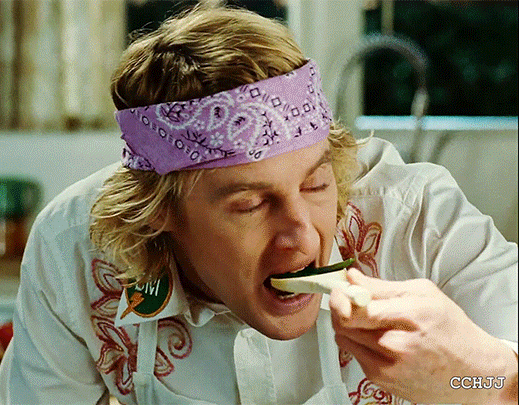
# princess
#he´s babygirl princess here tbh#my babygirl#owen wilson#you me and dupree#dupree#owilsonedit#owen wilson gifs#filmedit#dailyowenwilson#movie gifs#film gifs#my gifs#gifs#gif*#films#movies#2000 films#mine
29 notes
·
View notes
Photo
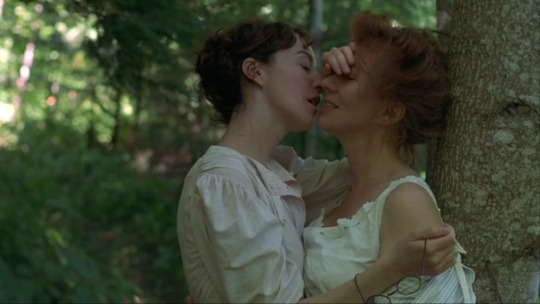

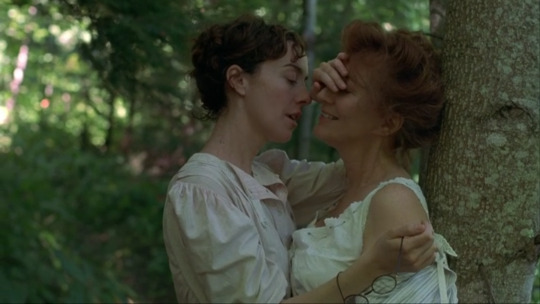

Songcatcher (2000)
#not to be dramatic but when will I be loved liked this#songcatcher#2000#2000 films#lesbian#lesbians in film#lesbian film#vintage lesbian#sapphic#Jane Adams#E. Katherine Kerr#appalachia
403 notes
·
View notes
Text
The Family Man (2000)
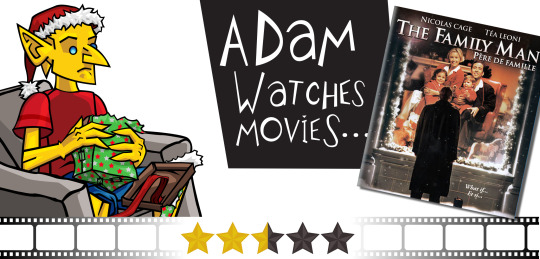
Around the holidays, you’re probably sitting around the TV with your loved ones, exchanging gifts and creating warm memories. Your heart is probably a bit mushy - your head might be too from too many glasses of “egg nog”. This makes you the perfect target for The Family Man, which is essentially a retread of other, better Christmas films with a couple of knobs tweaked. It’s got appeal but it’s no classic.
Thirteen years ago, Jack Campbell (Nicolas Cage) said goodbye to Kate Reynolds (Téa Leoni) and swore he’d come back for her after his twelve-month internship with Barclays in London. They never saw each other again. Now a bachelor living as a Wall Street executive, Jack gets to see the life he never got to live when he wakes up one day, married to Kate with two children.
We’ve got a kind of body-switch movie meets a reverse “It’s a Wonderful Life” scenario. Jack was used to lighting his fancy cigars with dollar bills. Now, he’s sleeping next to the same woman every morning, trying in vain to bring his daughter, Annie (Makenzie Vega) to school while keeping an eye on his newborn son. He sells tires at his father-in-law’s business and has a pathetic wardrobe compared to the luxurious suits he used to wear. The scenario is played for comedy until (of course) Jack begins to warm up to his new family. This is where the film wobbles. There’s a reason why body-switch movies usually feature someone at the bottom thrust up. A kid becomes an exec at a toy company, a daughter gets her mother’s body, a woman whose marriage is falling apart goes back in time to when she and her future husband first met. When you have it the other way around, it creates a divide between you and the protagonist. Firstly, Jack is hard to relate to. He went from a luxury suite in New York, working at a job that meant setting up meetings on Christmas day to what most of us would call an ordinary life. No one watching would ever think "This is not an upgrade". Secondly, Jack is an idiot for a large chunk of this movie, unable to handle even simple household tasks. It’s comical for a bit but this film leans heavily on the emotional side and the two should mix… but they just don’t.
A hint of what this picture could’ve been is seen briefly whenever Jack and his daughter interact. She recognizes immediately that something’s amiss - it’s pretty easy to tell but she’s the only one who does - and volunteers to help her “father” get through the day. Those scenes bring a smile to your face. More of those, please!
That said, the film often hits the emotional notes well enough for you to forgive its predictable storyline. For one, Téa Leoni and Nicolas Cage have fantastic chemistry. From their interactions, you’re immediately sold on the new lifestyle that’s been thrust onto Jack’s lap even though most of the movie doesn’t have the two of them properly in love. Maybe its the Christmas sentiments making your heart soft but whenever Jack has a revelation about his new life, you agree with it. In the back of your mind, you know the ending will be big and dramatic, that this glimpse at an alternate reality isn’t going to last, which fills you with sadness. You like this family. You want to see more of them and you want Jack to figure out what you knew from the second you saw him wake up next to Kate.
How you ultimately feel about The Family Man depends on how carefully you scrutinize it. Compared to the films it most closely resembles, it doesn’t hold up. Even without the comparisons, its nature prevents the film from creating the kind of emotional swell that sweeps you away. If you’re watching it with the whole family - the kids are there, your cousin who only watches Steven Seagall movies is there and grandma too - and you don't overthink it, Nicolas Cage and Téa Leoni work together well enough for you to enjoy The Family Man. (On Blu-ray, November 30, 2019)
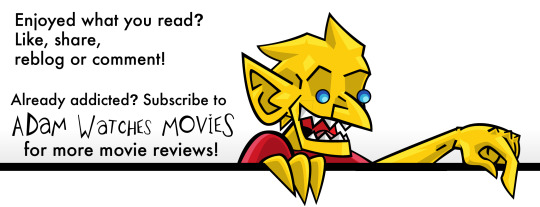
#The Family Man#movies#films#movie reviews#film reviews#Brett Ratner#christmas movies#christmas films#David diamond#David Weissman#Nicolas Cage#Tea Leoni#Jeremy Piven#Saul Rubinek#Don Cheadle#2000 movies#2000 films
4 notes
·
View notes
Text



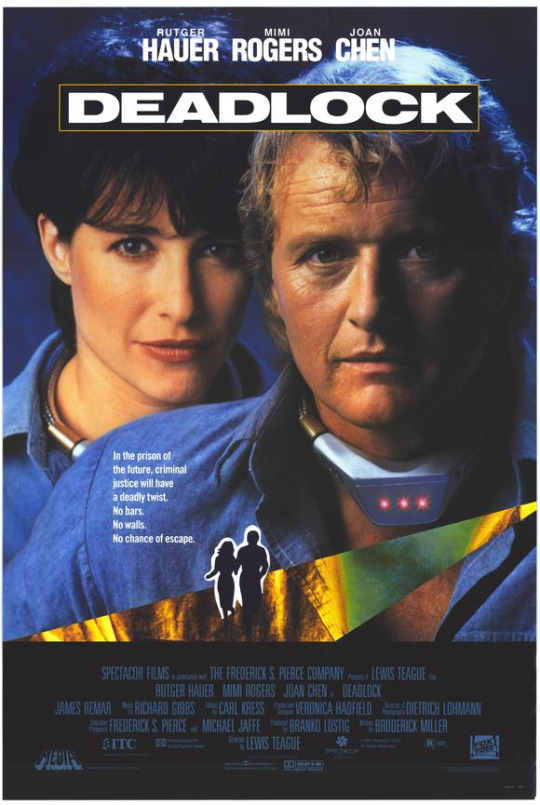


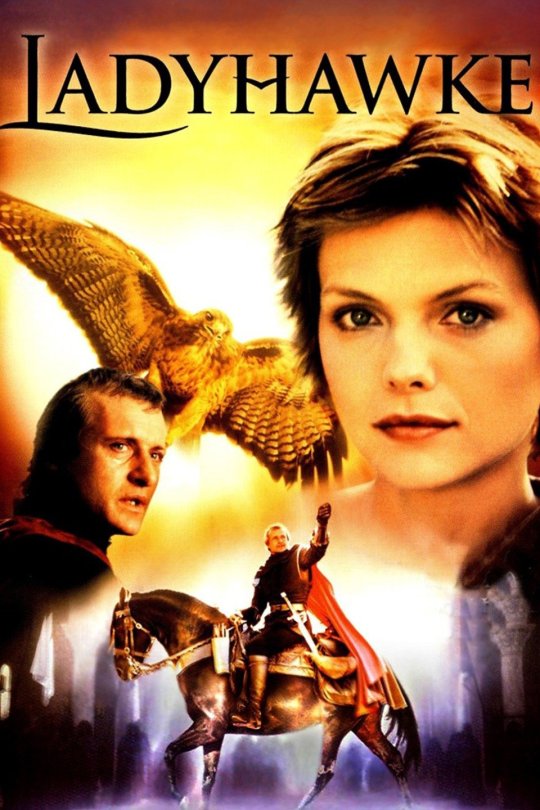

Various Rutger Hauer related film posters. I've noticed he has played a lot of Detectives.
#rutger hauer#wanted dead or alive#joan chen#the blood of heroes#split second#dead lock#pam grier#wilder#90s films#80s films#2000 films#film posters#film#cinema#action#thriller#sci fi#film noir#horror#mystery#the hitcher#blade runner#cyber punk#roy batty#ladyhawke#michelle pfeiffer#mimi rogers#rutger hauer appreciation post#films#replicant
11 notes
·
View notes
Text
Rookie-Critic's Halloween Horror-thon: Part 4 - #16-20


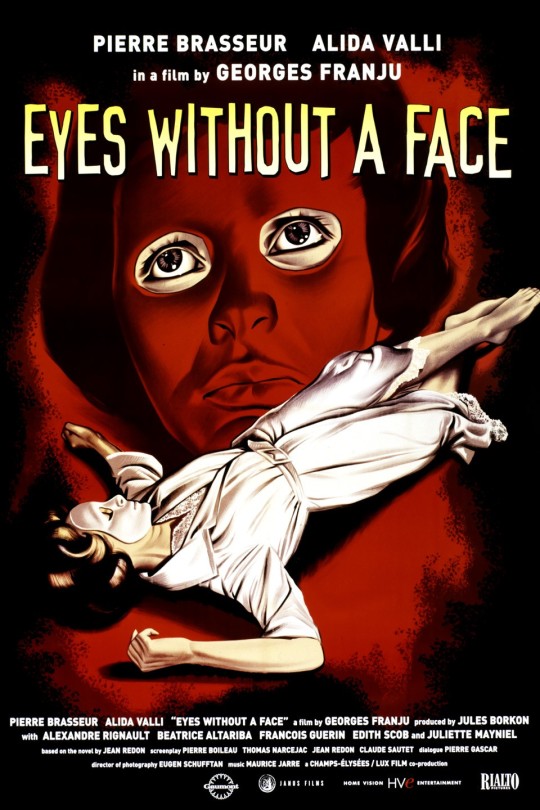
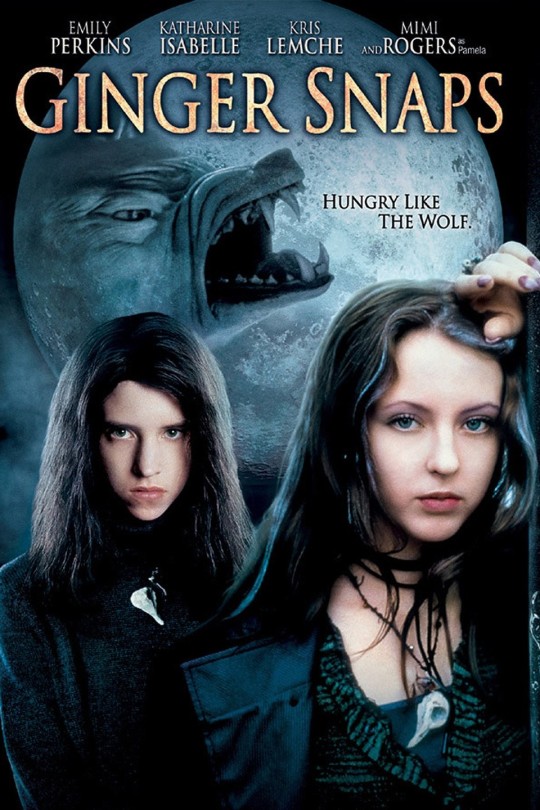

#16: Tetsuo: The Iron Man (1989, dir. Shinya Tsukamoto) [REWATCH]
A cult classic of Japanese cyberpunk horror and the debut film of one of my favorite Japanese directors, Shinya Tsukamoto (if you couldn't tell). The inspirational reach of this film is palpable if you know what to look for, having been cited by directors like Darren Aronofsky for his film Pi, Quentin Tarantino, David Fincher, and the Wachowskis for The Matrix. It's hard to argue with results like that. I personally love this movie, I have its scant 67-minute runtime nearly memorized and have seen it more times than I can remember. However, I can certainly acknowledge its shortcomings as something that's not accessible to most audiences. Plot is definitely more of a suggestion than a rule here, and a lot of the film is spent in a state of frantic bewilderment as you try to piece together what exactly is going on through the nearly incomprehensible madness onscreen, but ultimately the "why" of it isn't important. It's rare that I say this, but I almost prefer that the film doesn't really give the audience anything concrete to go off of. It gives enough, and for the purposes of its dissection (apropos word choice there, good job, Rookie) of the relationship between man and metal and the growing industrialization of the 80s, Tsukamoto does exactly what he needs to do, and doesn't overstay his welcome in the slightest. It's one of the bigger reasons why this film works better than either of its sequels/reimaginings, and why it's so well-regarded amongst international film buffs. A short, manic, bizarro-thrill ride, and I wouldn't have it any other way.
Score: 8/10
Currently streaming on AMC+/Shudder.
———————————————–
#17: Onibaba (1964, dir. Kaneto Shindo)
This, for a majority of its runtime, doesn't really feel like a horror movie. That being said, there are plenty of pieces of horror in it to where, by the end, I see why it's labeled as such. The suffocation of the grass field that surrounds our main setting from all sides aides the claustrophobic nature of the film, and casts an air of foreboding over every shot. It's an interesting watch that dives into the desperation we feel when we are starved of our base desires and how that can cloud our judgement, especially in times of great hardship (in this instance, war). It's a film that leaves itself wide-open for interpretation, and one I'm still pondering over days later.
Score: 7/10
Currently streaming on Max.
———————————————–
#18: Eyes Without a Face (1960, dir. Georges Franju)
This French horror from the early '60s is another that I've owned for quite some time, and just never taken the time to actually sit down and watch. It's a slow burn (much like a lot of these older, black-and-white films are), and there are moments that feel like they drag on for too long, but the parts of this film that do work, really work. What Franju and his team were able to accomplish with practical effects and makeup in this is exceptional by today's standards, let alone when the film was released in 1960. The acting from Édith Scob as Christiane is similarly excellent considering she acts through the entirety of her screen time with a mask on. To be able to convey emotion without the benefit of facial expressions and have it come through despite that handicap and the language barrier (the film is in French) rightfully earns this film the praise it has received over the decades.
Score: 7/10
Currently streaming on Max.
———————————————–
#19: Ginger Snaps (2000, dir. John Fawcett)
OK, so I've seen Jennifer's Body twice, right? Once back around the time it came out (I hated it then) and then once within the past 5 years because I heard it was underappreciated in its time and is worth re-evalutating (I still don't like it very much). So with the memory of Jennifer's Body still fairly fresh, I'm just gonna say this is so close to being the exact same movie (there's obviously some differences in their story: werewolf not succubus, sisters not best friends), to the point where I out loud in the group I was watching it with said "Jennifer's Body just straight ripped this off, right?" and got a fair amount of agreement. However, this, to me, is a much better film. It has a lot of the Diablo Cody-esque kitschy dialogue without tipping into hard cringe and the practical effects work, while B-movie-ish in nature (we're never, as a society, going to top the transformation sequence from An American Werewolf in London), is really well done. It strikes a good balance between camp and smartly written horror which Emily Perkins and Katharine Isabelle juggle competently. Isabelle especially steals the show here as the titular Ginger, and provides a good, if not slightly caricatured, depiction of female puberty. Narratively messy, but tonally sound, Ginger Snaps deserves its status as a cult classic.
Score: 7/10
Currently streaming on Peacock.
———————————————–
#20: Opera (1987, dir. Dario Argento)
Opera is largely considered director Dario Argento's last great film before the quality of his output started to drop, and I can see why. It has all of the things that make his movies so good: a compelling main character driven by an even more compelling lead performance, an engaging mystery that unravels itself naturally over the course of the film, and that impeccable giallo style that he is the king of. Cristina Marsillach gives an impassioned performance and easily garners the audience's sympathy. The biggest curiosity of the film is that the murder sequences, which are expertly shot and unique in that the killer always ties up our protagonist and tapes needles underneath her eyes so that she has to watch the horror that ensues, are always cut with this insane, Judas Priest-like heavy metal music playing over them. Let me tell you that the consistency with which that heavy metal music played throughout the film had me confused, and then put off, and then finally fully indoctrinated by the final time it happened at the film's end. So much so that when that final time was about to happen, I was quite literally on the edge of my seat with anticipation, because I could feel it coming, and then when it finally came on I jumped up and cheered. I'm not sure if the desired reaction was achieved, but man was it massively entertaining. It's a little goofy, but I feel like this was about as far as Argento's signature style can be pushed without being a parody of itself, and Opera still largely works in spite of that glaring oddity.
Score: 7/10
Currently streaming on AMC+/Shudder.
#Rookie-Critic's Halloween Horror-thon#Halloween Horror-thon#Halloween#Horror#Tetsuo: The Iron Man#Tetsuo#The Iron Man#Onibaba#Eyes Without a Face#Ginger Snaps#Opera#Shinya Tsukamoto#Kaneto Shindo#Georges Franju#John Fawcett#Dario Argento#1989 films#1964 films#1960 films#2000 films#1987 films#film review#movie review
1 note
·
View note
Photo
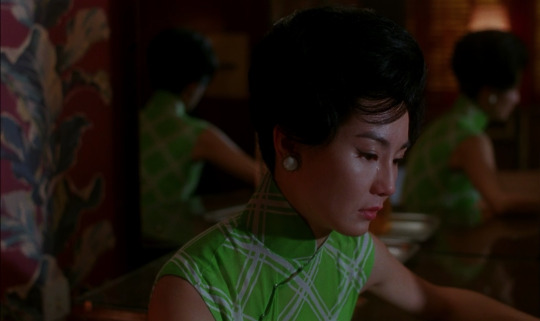
2 notes
·
View notes
Text
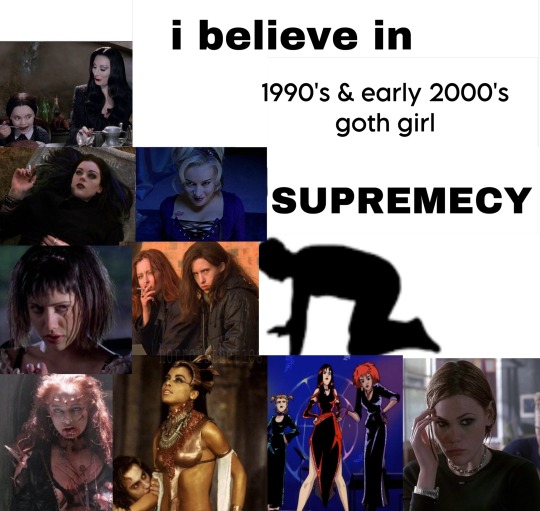
real.
#90s#goth subculture#90s aesthetic#horror#horror film#horror aesthetic#90s horror#1990s#1990s horror#2000s horror#2000s aesthetic#early 2000s#90s goth#1990s goth#2000s goth#goth aesthetic#gothic#goth girl#goth#horror memes
11K notes
·
View notes
Text
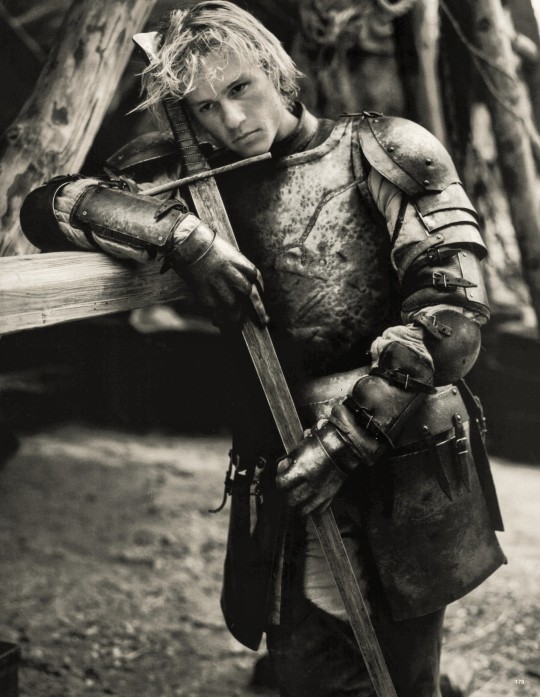
Heath Ledger - May 2000 - by Bruce Weber.
#heath ledger#a knight's tale#film#2000s#movies#celebs#cinema#knight#medieval#actor#sword#brokeback mountain#bruce weber#retro#fantasy#armor#the joker#lit#culture#geoffrey chaucer#the canterbury tales#📚
11K notes
·
View notes
Text

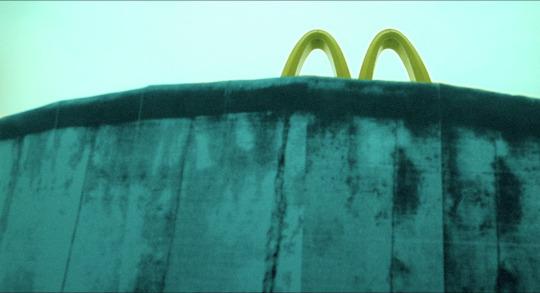
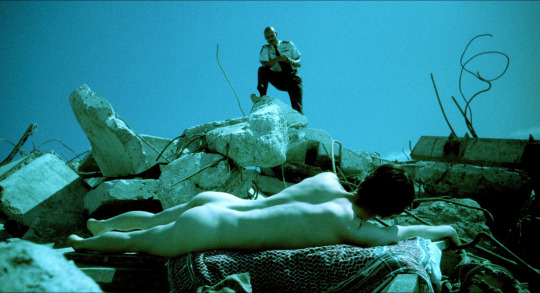
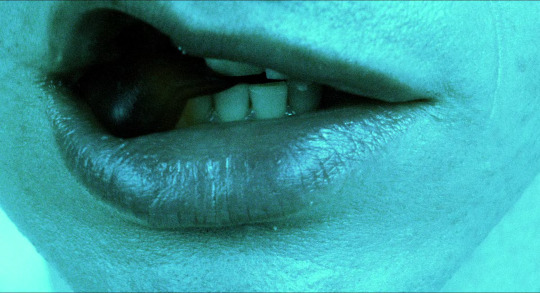
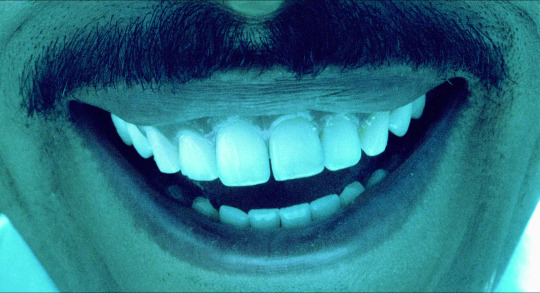
Hedwig and the Angry Inch (2001)
Director: John Cameron Mitchell
Cinematography: Frank G. DeMarco
Production Design: Thérèse DePrez
Art Direction: Nancey Pankiw
#cinematography#film stills#movie stills#hedwig and the angry inch#john cameron mitchell#maurice dean wint#cult classic#queer film#i could write a dissertation about this movie and not entirely in a good way#2000 films#early 2000s#2000s movies#2000s aesthetic
125 notes
·
View notes
Text
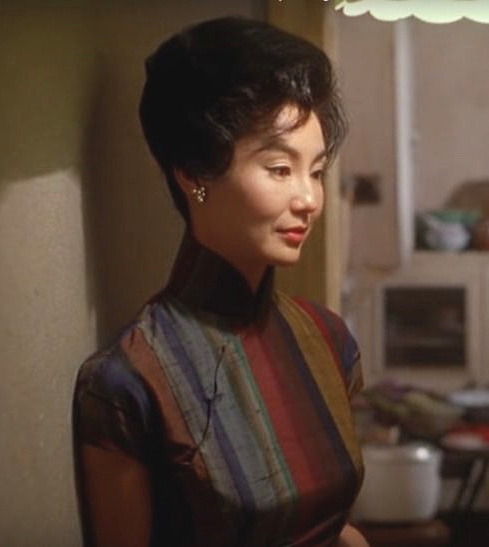




One Dress a Day Challenge
Multicolored August
In the Mood for Love / Maggie Cheung as Su Li-zhen (Mrs. Chan)
Another cheongsam/qipao. This movie is set in the 1960s in Hong Kong, where this type of dress stayed in fashion for a while even after it had gone out of style elsewhere. Maggie Cheung wears quite a parade of them, in fact (twenty in all according to this writeup).
I picked this one in particular because so many of the dresses I have featured for the multicolored month have been rather bright, and this is a beautiful example of a dress that is both multicolored and tastefully subdued. The colors are so rich, and the fabric looks to have a bit of "artisinal roughness" in its texture.
#in the mood for love#multicolored august#maggie cheung#one dress a day challenge#one dress a week challenge#movie costumes#period film#2000 films#2000 movies#cheongsam#qipao#1960s style#1960s fashion#also something my late mother would have worn#at least the fabric if not the style
24 notes
·
View notes
Text
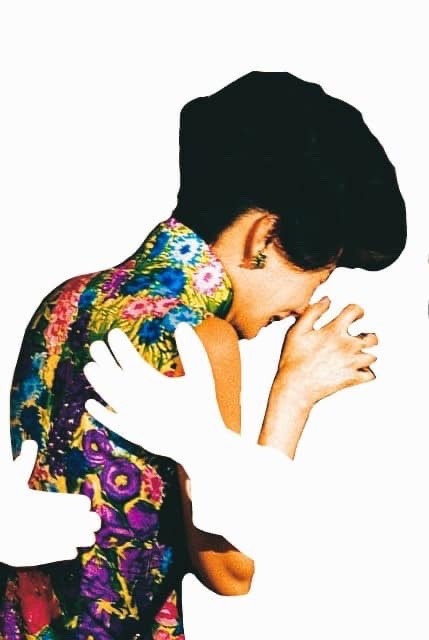
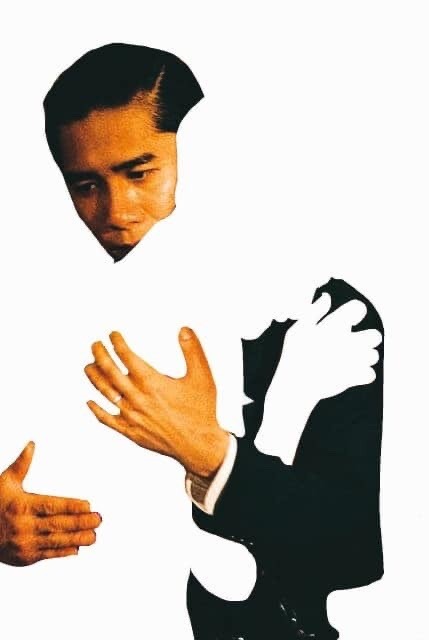
In the Mood for Love (2000) directed by: Wong Kar-wait
5K notes
·
View notes
Text
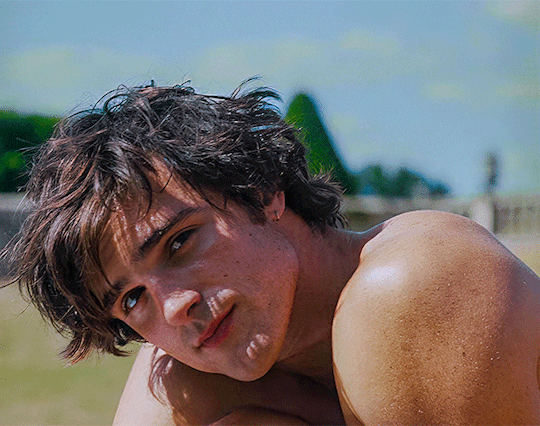
JACOB ELORDI
Saltburn (2023) dir. Emerald Fennell
#omg is this him looking at oliver? emerald u'll pay for what u've done to me#jacob elordi#filmedit#saltburn 2023#saltburn#perioddramaedit#film#movie#emerald fennell#felix catton#periodedits#period drama#early 2000s
4K notes
·
View notes
Text
The Emperor's New Groove (2000)

It’s hard to believe Disney’s The Emperor’s New Groove was a box office disappointment. This is Disney doing Dreamworks before Dreamworks had an identity. No romance. No princesses. Only one musical number. It’s a fast-paced comedy, the kind whose jokes come and go so fast you miss half of them. It was a big risk that might not have paid off in dollars in the year 2000 but certainly does in entertainment value today.
Self-centered Incan emperor Kuzco (voiced by David Spade) has just finished informing Pacha (John Goodman) that his small village is going to be torn down to make room for a royal pool when he is betrayed by his advisor, Yzma (Eartha Kittening). Unfortunately, her dim-witted eye-candy flunky, Kronk (Patrick Warburton), mixed up the potions. Instead of poisoning Kuzco, he's transformed him into a llama. Forced to ask Pacha for help, Kuzco begins to change his selfish ways.
Right away, you know you’re not watching the typical Disney story when Kuzco breaks the fourth wall and introduces The Emperor’s New Groove as HIS story: the tale of a king who’s been abused and mistreated. It’s not the last time we’ll be told to abandon our expectations. There’s only one musical number (two if you count the reprise). It’s an anthem all about how wonderful and glorious Emperor Kuzco is, sung by Tom Jones. Still not convinced you’re in for something different? Just take a look at the character designs. The proportions are wildly exaggerated, even for an animated movie. Kronk’s torso must be five times as wide as his waist while Yzma’s skeletal-like figure would be impossible to achieve in real life. Anything to make them funnier. That’s the motto of the film. Historical anachronisms? Why not? Goofy-looking characte designs? You know it. Unexpected and impossible developments? Of course! The goal is to make you laugh. To do this, the running time must be packed tight with jokes. If Kuzco is going to be chased by jaguars while screaming his head off, then Mark Dindal chooses to first take a half-second to put in one little gag before the big one. Kind of a warm-up for the main event.
The animators have been given free rein to smash and twist Kuzco any way they want as they teach him a lesson in humility. It makes for a simple story - which is why the picture only lasts 78 minutes - and that’s exactly the way it should be. Just when you’d get tired of laughing, the credits roll. "Aww no! Really? Well, maybe I’ll just watch it again. I sure had a good time and I know I missed out on some of the jokes." You will, particularly with the way the film uses backgrounds to comment on elements in the foreground or glosses over stuff so we can keep things moving. Other comedies might pause and give the audience the chance to drink it all in. The Emperor's New Groove has somewhere else it wants you to be already.
The Emperor’s New Groove is an oddity in the Disney canon. This just makes it that much more enjoyable. It defies your expectations in multiple ways. From the humor, to the characters, the way the story is told, to the art style and its willingness to go anywhere as long as it’s funny, this is one memorable film. (On Blu-ray, September 11, 2020)
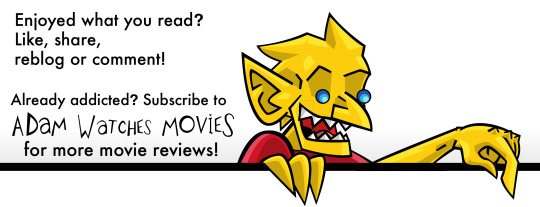
#the emperor's new groove#movies#films#movie reviews#film reviews#disney movies#disney films#mark dindal#david reynolds#David spade#john goodman#eartha kitt#patrick warburton#wendie malick#2000 movies#2000 films
4 notes
·
View notes
Text
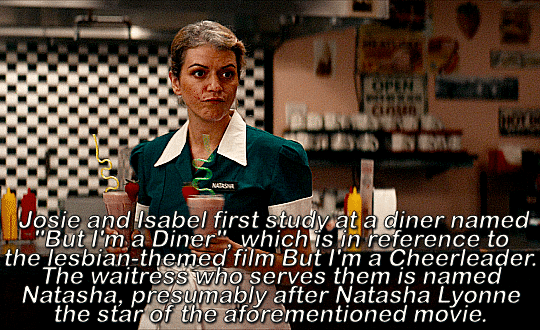
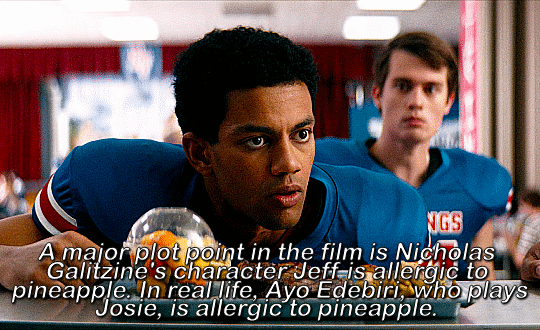
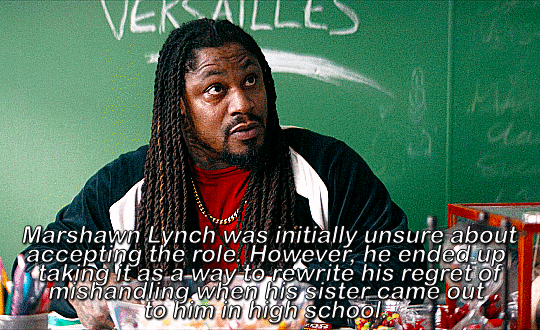
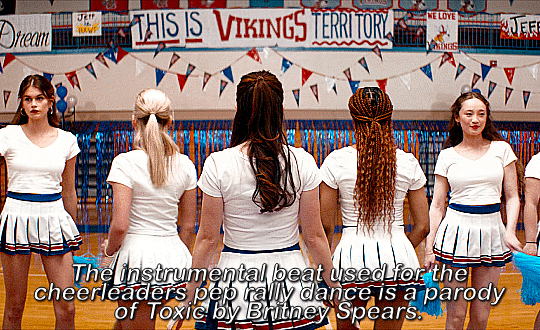

BOTTOMS + trivia
#i feel like the bottoms hype has died dramatically BUT I'M NOT OVER IT#also tbh i think the film is set in the late 2000s but these are from imdb whatever and also i hope no one has done this yet? sry if so#bottoms 2023#bottomsedit#filmedit#filmgifs#bottoms movie#cinemapix#moviegifs#useraurore#userclara#userallisyn#tuserdee#userriel#usereri#usertiny#usertj#userkam#tusercourtney#userbrittany#tuserbelovas#userjl#userzil#userrobin#userbeckett#usercleo#usergay#*
7K notes
·
View notes